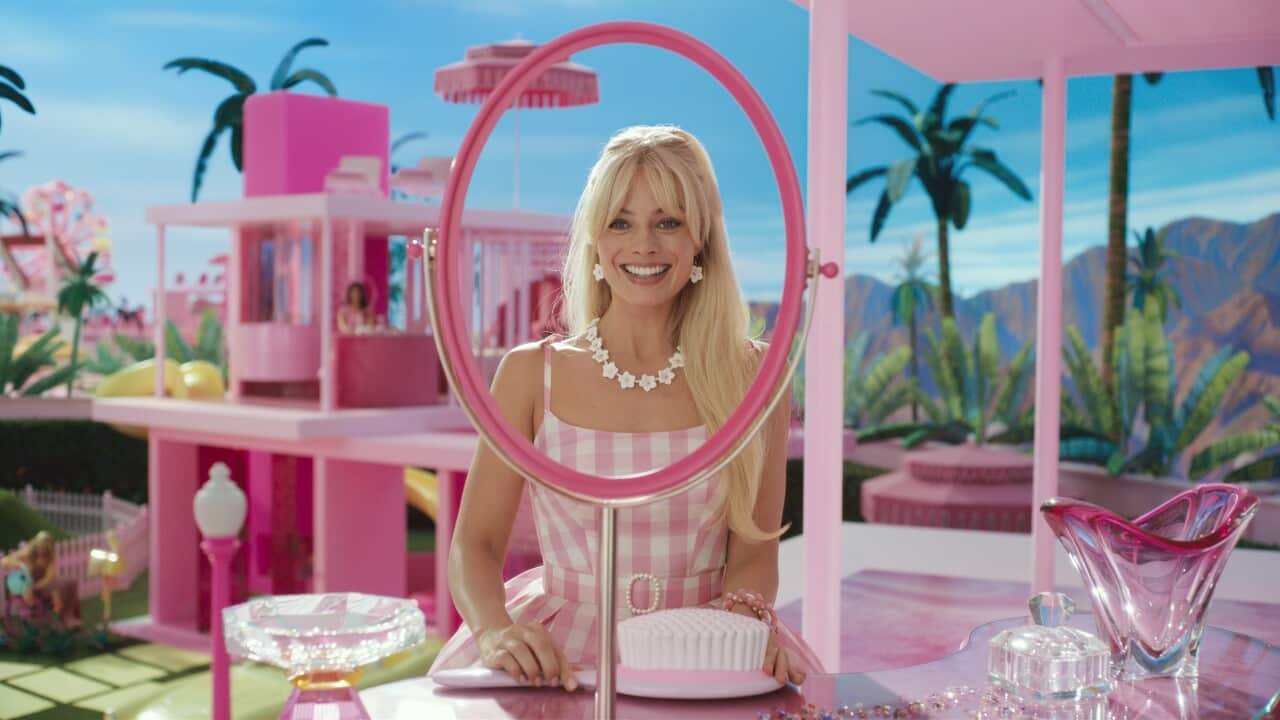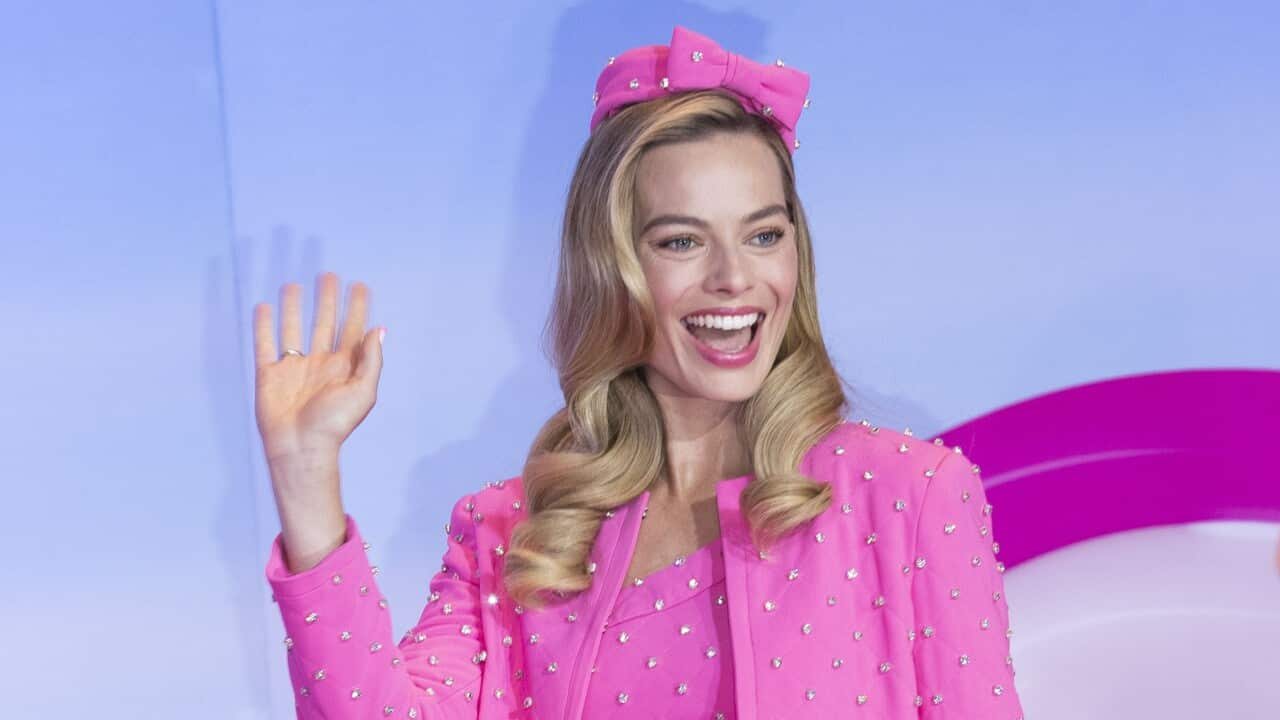It's Barbie's world and we're just living in it — at least that's what the marketing campaign for the upcoming feature film centred around the iconic doll might have you believe.
While Mattel has made obvious partnerships with clothing, shoe, accessory, and make-up brands, everything from burgers to bus stops, and even dating app Bumble, has been Barbie-fied ahead of the film's release.
A collaboration between Barbie and Airbnb will also see a few fans stay at a real-life Malibu DreamHouse — something Lauren Gurrieri, an associate professor in marketing at RMIT University, described as "almost so monstrous" it had "to be seen to be believed".

A few lucky Barbie superfans will get to stay in a Ken-themed Malibu DreamHouse this weekend, to coincide with the film's release. Source: Supplied / Airbnb
Australia's own Margot Robbie, who plays the film's titular role and is one of its producers, has even used the global press tour to take theme dressing to a whole new level, paying homage to several iconic Barbie looks over the decades.
"It seems so long since we've had a film that saturated everything," Lauren Rosewarne, a gender and pop culture expert at the University of Melbourne, told SBS News.

Margot Robbie chanelled an iconic Barbie outfit while promoting the film in Sydney. Source: AAP / Warner Bros/AP
Has the Barbie brand evolved, or is it all just a marketing exercise?
After facing criticism in the past for promoting "a blonde, white and thin beauty standard", Gurrieri said Mattel was now seeking to position Barbie as "".
"The movie and accompanying promotion offers an opportunity to revitalise and redefine the brand to ensure relevance for contemporary consumers," she said.
"With a diverse cast and a director's (Greta Gerwig) decree that the film will tackle issues related to girlhood, womanhood and sexualisation, and promote Barbie as an inspirational character, the film reflects recent efforts by the brand to diversify the Barbie line of products with dolls of different skin tones, body shapes, abilities, et cetera.
"However, this may simply be diversity washing on a mass scale, employing empty tropes of social justice and female empowerment to cover up a chequered brand history of a character that promotes poor body image, unrealistic ideals, and rampant materialism."

The film features Barbies and Kens from of different sizes, ethnicities, abilities, and professions. Source: AP / Warner Bros. Pictures
"If you truly just wanted to make a film that was diverse, why pick Barbie?" she said.
"You pick Barbie because it's got established traction, brand recognition, all these things that capitalism helps move."
Rosewarne said it would be "hard" to make money from a Barbie film that didn’t feature more diversity.
"A straight-down-the-line Barbie, ... an unattainable body image, fashion plate-type thing, is not going to work in 2023," she said.
"The angle here is the newness. The angle here is it's made by a female and feminist director. The angle is the diversity. The angle is how are we taking an old toy and making it new?"
Has Barbie's marketing team succeeded?
Gurrieri said the film's huge marketing budget had supported efforts to "widen the cultural resonance of brand Barbie".
"For example, we are now witnessing the 'Barbiecore' trend explode across social media platforms and youth cultures, where vibrant pink hues and hyper-femininity is embraced," she said.
"Of course, this has the benefit of creating further excitement and brand collaboration opportunities for Barbie, driving sales and enhancing brand image and awareness as people creatively engage with Barbie-related aesthetics."

Barbie is now the biggest movie to be directed by one woman, surpassing Wonder Woman's $US821.8 million global total. Source: AP / Warner Bros. Pictures
"Every film aims to create a cultural moment, most just don't," she said.
But how much of a financial success it was would ultimately come down to how much it made at the box office, Rosewarne said.
"They don't always match up," she said.


